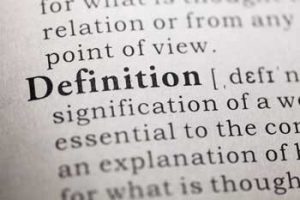Short Definition:
Copyright in franchising refers to the protection of creative works, such as marketing materials, manuals, and other proprietary content provided by the franchisor to franchisees under a franchise agreement.
Long Definition:
Copyright is a form of intellectual property law that protects the original works of authorship, including literary, dramatic, musical, artistic, and certain other intellectual works. In a franchising relationship, copyright ensures that the franchisor retains exclusive rights to their original content and materials which are used by franchisees to conduct business in a manner that is consistent and reflective of the brand’s standards. These materials might include operational manuals, training programs, advertising materials, and proprietary software, all of which are crucial for maintaining uniformity and brand integrity across all franchise locations.
 Additional Definition: Generally, the exclusive right of the author or creator to protect his or her creation, such as a movie, book, music, or other expression. As it relates to franchising, copyrights most often apply to confidential written material (such as the operating manual, proprietary recipes, and the like). Under a franchise agreement, the franchisor usually licenses the franchisee to use those copyrighted materials in the operation of the franchised business for the term of the agreement.
Additional Definition: Generally, the exclusive right of the author or creator to protect his or her creation, such as a movie, book, music, or other expression. As it relates to franchising, copyrights most often apply to confidential written material (such as the operating manual, proprietary recipes, and the like). Under a franchise agreement, the franchisor usually licenses the franchisee to use those copyrighted materials in the operation of the franchised business for the term of the agreement.
History and Usage:
Copyright law originated to promote the creation and dissemination of art and culture by giving authors and creators exclusive rights to their works. In franchising, the use of copyright began as franchisors developed unique systems and proprietary knowledge that needed protection to ensure that the brand’s identity and operational consistency were maintained across various locations. By copyrighting these materials, franchisors are able to control and standardize the execution of their business model, ensuring that every franchisee delivers the same brand experience to customers.
Five Questions often asked and answers to each question:
Example of three, legally correct, sentences using the term – ‘Copyright’ related to franchising:
Summary:
Copyright is a fundamental element in the franchising relationship, providing franchisors with the necessary legal framework to safeguard their proprietary materials and ensure that their business model and brand identity are consistently implemented across all franchise locations. Understanding and respecting copyright terms is crucial for maintaining a healthy franchisor-franchisee relationship and ensuring the long-term success of the franchise system.
Learn more about franchising in The Educated Franchise – 3rd Edition